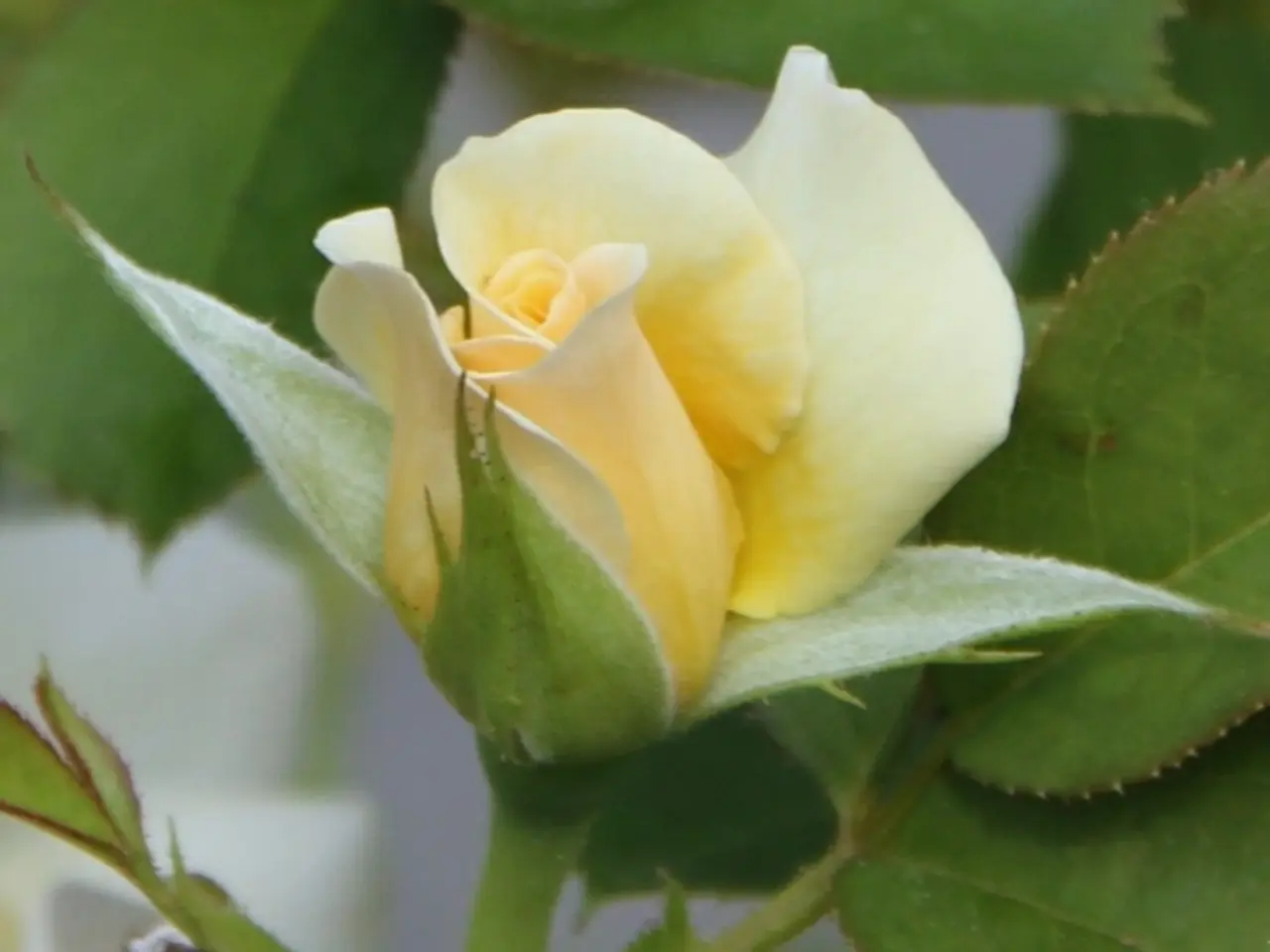Yellowing Rose Leaves: Comprehending the Cause and Solutions
Roses, a beloved addition to many home landscapes, can sometimes exhibit yellow leaves. This article aims to shed light on the common causes and effective treatment methods for yellowing rose leaves.
Yellow leaves on roses can be a result of various factors, including improper watering, nutrient deficiencies, poor soil drainage, pest infestations, fungal diseases, and environmental stress such as insufficient sunlight or heat.
Improper watering, both overwatering and underwatering, can cause yellow leaves. Overwatering can lead to root rot, suffocating the roots, while underwatering stresses the plant and also causes yellow leaves.
Nutrient deficiencies, especially nitrogen and iron, can also cause yellow leaves. A nitrogen deficiency results in general yellowing and leaf drop, as nitrogen is crucial for leaf activity. Iron deficiency, or iron chlorosis, causes yellow leaves with green veins and is common in soils with inappropriate pH or low iron availability.
Poor soil drainage, waterlogged soil, rots roots and makes it hard for the rose to absorb nutrients, promoting yellow leaves.
Pests and diseases like spider mites and fungal infections such as downy mildew and black spot fungus can also cause yellowing and leaf drop.
Environmental factors such as compacted soil, planting too deeply, or insufficient sunlight also contribute to the problem.
To address these issues, several treatment and management steps can be taken:
- Adjust watering: Ensure soil is moist but not soggy; water early in the morning and avoid wetting leaves.
- Improve soil drainage: Use pots with drainage holes or amend heavy soil with sand or compost to prevent standing water.
- Fertilize appropriately: Use nitrogen-rich, slow-release fertilizers to correct nitrogen deficiency. Apply chelated iron or sulfur to address iron chlorosis and adjust soil pH to between 6.0 and 6.5 for optimal nutrient absorption. Organic options like fish emulsion fertilizer can support healthy foliage.
- Remove diseased leaves and improve spacing to enhance air circulation and prevent fungal spread.
- Monitor and control pests like spider mites promptly to prevent leaf yellowing and drop.
- Ensure proper planting conditions: Plant roses in loose, well-draining soil without disturbing roots excessively and avoid planting too deep.
Mulching around roses may help protect them from heat stress. Leaves of stressed rose plants may begin to yellow from overwatering or prolonged periods of underwatering. Never allow rose bushes to sit in soggy soil for extended periods.
In an otherwise healthy rose bush, leaves turning yellow may not be an immediate cause for concern, but issues related to watering are most common. However, nutrient deficiencies in the soil, such as insufficient levels of iron, magnesium, and nitrogen, can contribute to a plant's change in color and may even lead to a sudden loss of vigor.
Roses are a common addition to home landscapes and come in various cultivars, including open-pollinated and heirloom types. Unexpected yellowing of rose leaves may also be caused by insect troubles, particularly sucking pests like aphids, spider mites, and thrips. Yellow spots on rose leaves can be a sign of various diseases, such as black spot, rose mosaic disease, rust, and other fungal issues.
By understanding these factors and implementing appropriate treatment methods, you can restore yellowing rose leaves to a healthy green and improve overall rose health.
Home-and-garden enthusiasts may encounter yellow leaves on their roses, a common issue with various causes. Improper watering, whether overwatering leading to root rot or underwatering resulting in stress, can cause yellowing rose leaves. (lifestyle, gardening)
To maintain rose health and prevent yellow leaves, gardening practices such as adjusting watering habits, improving soil drainage, and fertilizing appropriately using organic options like fish emulsion fertilizer can be effective. (home-and-garden, gardening)




